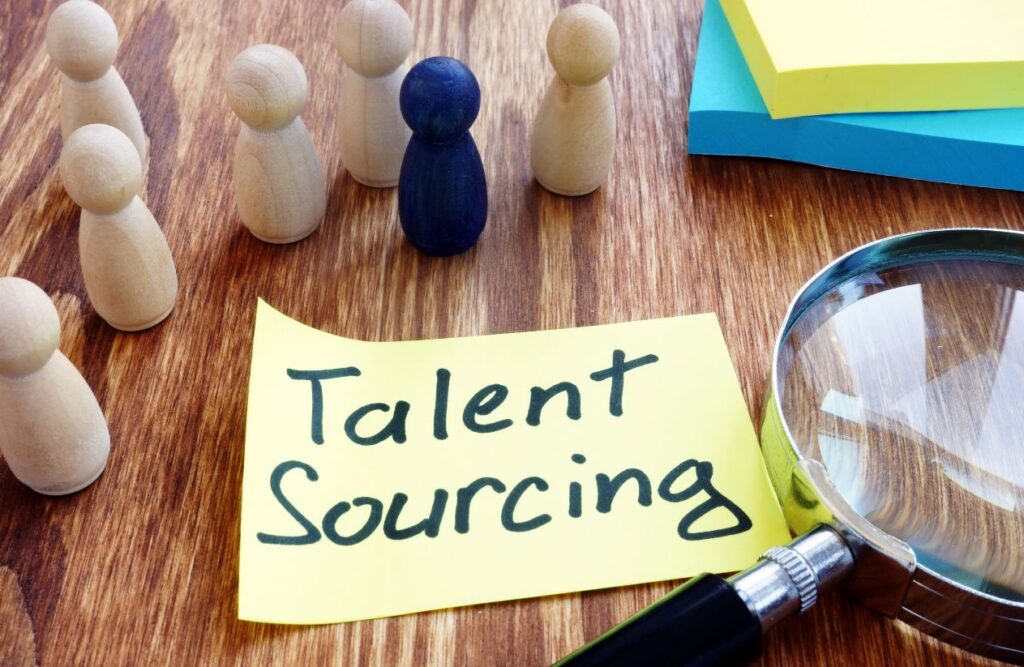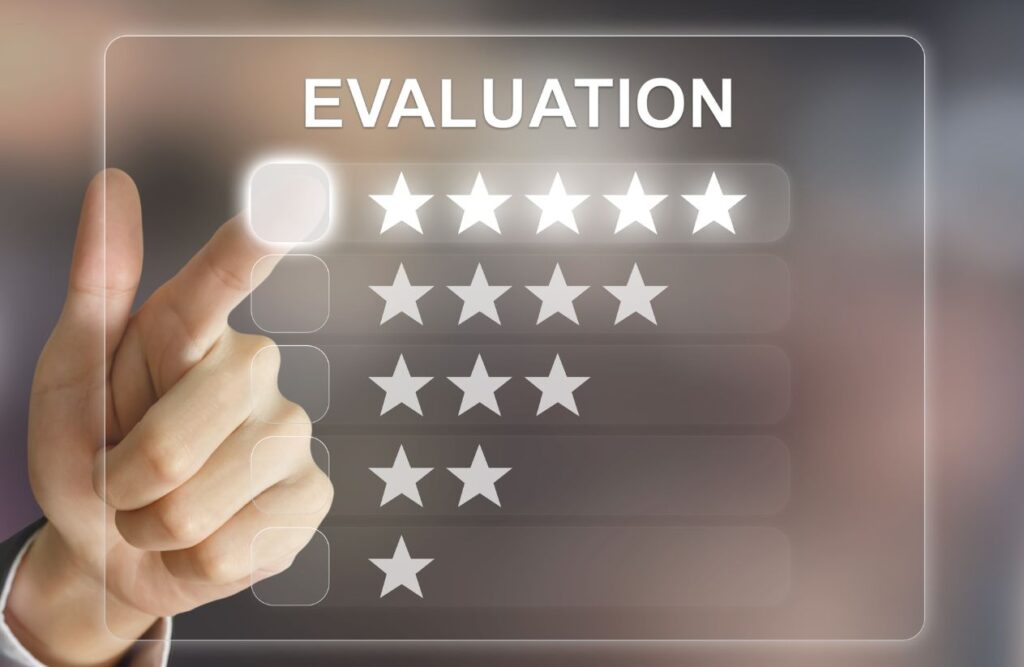Hiring the right people to bring your event to life is key. Whether it’s a corporate conference, a product launch, or a wedding, the right talent can make all the difference.
In this guide, we’ll dive into 10 essential things to consider when hiring event talent. By understanding these factors, you can make informed decisions and ensure a flawless and memorable event.
Here are the things that you need to consider for Hiring Event Talents
1. Define Your Needs Clearly: The Foundation of Successful Event Talent Hiring

A well-defined event concept is the cornerstone of successful talent hiring. By clearly outlining your needs, you’ll attract the right talent and ensure a seamless event execution.
Identify Specific Roles and Responsibilities
- Break Down Your Event: Divide your event into distinct segments, such as the opening ceremony, keynote speeches, panel discussions, workshops, entertainment acts, and closing ceremony.
- Pinpoint Key Roles: For each segment, identify the specific roles required, such as hosts, moderators, speakers, performers, technical staff, and production crew.
- Outline Responsibilities: Create a detailed job description for each role, outlining the specific tasks, time commitments, and expected outcomes. This clarity helps you attract talent who are well-suited for the job.
Determine the Required Skill Set and Experience Level
- Skill Assessment: Identify the essential skills and qualifications needed for each role. For example, a keynote speaker might need strong public speaking skills, industry knowledge, and the ability to engage an audience.
- Experience Level: Determine the appropriate level of experience required for each role. Consider whether you need seasoned professionals or emerging talent.
- Language Proficiency: If your event involves international attendees or multilingual content, assess the language proficiency requirements for your talent.
Consider the Event’s Theme, Target Audience, and Overall Objectives
- Align Talent with Theme: Choose talent that complements the overall theme and atmosphere of your event. For example, if your event theme is “Innovation and Technology,” consider hiring speakers who are experts in the field and can deliver inspiring talks.
- Target Audience Preferences: Consider the demographics and interests of your target audience when selecting talent. For example, if your audience is primarily young professionals, you might want to hire younger, more dynamic speakers.
- Event Objectives: Ensure that the talent you hire aligns with the specific goals and objectives of your event. For example, if your goal is to generate leads, you might want to hire keynote speakers who can inspire attendees to take action.
By taking the time to define your needs clearly, you’ll be able to attract and hire the right talent to create a memorable and successful event.
Related Content:You can also read our article about the Top Trends in Event Entertainment
2. Set a Realistic Budget: A Strategic Approach to Talent Acquisition

A well-structured budget is essential to attract top-tier talent and ensure the financial success of your event. By carefully considering various factors and prioritizing key roles, you can allocate funds effectively.
Define Your Overall Event Budget
- Financial Resources: Assess your available financial resources, including sponsorship, ticket sales, and other revenue streams.
- ROI Expectations: Consider your expected return on investment (ROI) and allocate funds accordingly. A well-invested budget in talent can significantly impact your event’s success and generate substantial returns.
Allocate Funds for Talent Acquisition
- Talent Fee Allocation: Allocate a significant portion of your budget to talent fees, as they are often the most significant expense.
- Tiered Budgeting: Consider a tiered budgeting approach, allocating higher fees for headline acts and key speakers, and lower fees for supporting roles.
- Negotiation Tactics: Employ effective negotiation strategies to secure favorable rates from talent agencies and individual performers.
Factor in Additional Costs
- Travel and Accommodation: If talent needs to travel, budget for airfare, hotel accommodations, and transportation expenses.
- Per Diem: Consider providing per diem allowances to cover meals and incidentals.
- Production Costs: Allocate funds for production costs, such as stage setups, lighting, sound, and technical support.
- Insurance: Purchase appropriate insurance coverage to protect against unforeseen circumstances.
Prioritize Key Roles and Allocate Funds Accordingly
- Identify Critical Roles: Determine which roles are essential to the success of your event, such as keynote speakers, headline performers, and emcees.
- Strategic Allocation: Allocate a larger portion of your budget to these key roles to attract top-tier talent.
- Balance Costs and Quality: Balance the need for high-quality talent with budgetary constraints. Consider negotiating fees, exploring emerging talent, or offering additional incentives.
By carefully considering these factors, you can create a realistic budget that allows you to attract and retain top-tier talent, ensuring a memorable and successful event.
3. Timely Hiring Process: A Proactive Approach to Event Talent Acquisition

A well-structured and timely hiring process is crucial for the success of your event. By initiating the process early, establishing clear deadlines, and maintaining effective communication, you can secure top-tier talent and avoid last-minute stress.
Early Planning and Proactive Talent Search
- Initial Planning: As soon as your event concept is finalized, start planning your talent acquisition strategy.
- Early Outreach: Reach out to potential talent well in advance, even if your event is months away.
- Build Relationships: Establish relationships with talent agencies, managers, and individual performers to facilitate future collaborations.
Create a Detailed Timeline with Flexible Deadlines
- Milestone Identification: Break down the hiring process into key milestones, including talent research, initial contact, auditions, interviews, negotiations, and contract signing.
- Realistic Deadlines: Set realistic deadlines for each milestone, considering factors such as talent availability, production schedules, and potential delays.
- Flexibility: While a detailed timeline is essential, be prepared to adjust your schedule as needed to accommodate unforeseen circumstances, such as last-minute cancellations or scheduling conflicts.
Effective Communication and Timely Follow-up
- Clear Communication: Maintain open and transparent communication with talent throughout the hiring process.
- Prompt Responses: Respond to inquiries and emails promptly to demonstrate professionalism and interest.
- Regular Follow-up: Schedule regular follow-up calls or emails to keep talent updated on the status of the hiring process.
Efficient Audition and Interview Process
- Streamlined Auditions: Establish a clear audition process, including guidelines for submission formats, deadlines, and evaluation criteria.
- Efficient Interviews: Schedule interviews promptly and conduct them in a professional and efficient manner.
- Decision-Making: Make timely decisions regarding talent selection to avoid delays.
By following these guidelines, you can streamline your hiring process, secure top-tier talent, and ensure the success of your event.
4. Effective Talent Sourcing: Expanding Your Search for Diverse Talent

A comprehensive talent search is essential to find the best individuals for your event. By leveraging a variety of channels and prioritizing diversity and inclusivity, you can attract a wide range of talented professionals.
Utilize a Variety of Channels
- Online Talent Platforms: Explore online platforms like AGNT to discover a diverse pool of talent.
- Talent Agencies: Partner with reputable talent agencies to access a wide range of experienced professionals.
- Social Media: Utilize social media platforms like LinkedIn, Instagram, and Twitter to connect with potential talent and industry professionals.
- Word-of-Mouth Referrals: Leverage your network and seek recommendations from colleagues, friends, and past collaborators.
Prioritize Diversity and Inclusivity
- Diverse Talent Pool: Actively seek out talent from diverse backgrounds, including different races, ethnicities, genders, sexual orientations, and abilities.
- Inclusive Practices: Implement inclusive hiring practices, such as avoiding bias in job descriptions and conducting unbiased interviews.
- Diverse Representation: Ensure that your event reflects the diversity of your audience and community.
Want easier talent sourcing?
For a streamlined and efficient talent-sourcing experience, consider using our platform agnt.com.
Agnt.com is a premier talent booking marketplace that connects event planners with a vast array of world-class performers. From musicians and comedians to speakers and novelty acts, agnt.com allows you to browse top entertainers by category, event type, and your budget.
5. Thorough Screening and Selection: A Rigorous Approach to Talent Acquisition

A robust screening and selection process is essential to identify the most qualified and suitable talent for your event. By carefully reviewing applications, conducting in-depth interviews, and checking references, you can minimize risks and ensure the success of your event.
Develop a Comprehensive Screening Process
- Clear Evaluation Criteria: Establish clear and objective criteria to evaluate talent based on their skills, experience, and suitability for your event’s specific needs.
- Standardized Evaluation Form: Develop a standardized evaluation form to ensure consistency in the assessment process. This form should include sections for rating candidates on various factors, such as technical skills, communication skills, creativity, and overall fit.
Rigorous Review of Applications
- Initial Screening: Carefully review resumes, cover letters, and portfolios to identify candidates who meet the basic qualifications.
- Skill Assessment: Evaluate candidates’ technical skills, creative abilities, and relevant experience.
- Red Flag Identification: Be mindful of any red flags, such as inconsistencies in information, gaps in employment history, or unprofessional presentation.
In-Depth Interviews
- Structured Interview: Prepare a list of relevant questions to assess candidates’ skills, experience, and personality.
- Behavioral Interviewing: Use behavioral interview questions to gain insights into past performance and problem-solving abilities.
- Cultural Fit Assessment: Evaluate candidates’ cultural fit with your organization and event, considering their values, work style, and ability to collaborate with others.
Thorough Reference Checks
- Contact References: Contact references provided by candidates to verify their credibility, professionalism, and performance in past roles.
- Specific Questions: Ask specific questions about the candidate’s work ethic, reliability, ability to meet deadlines, and overall performance.
- Reference Check Form: Use a standardized reference check form to ensure consistency in the process and to track key information.
By implementing a rigorous screening and selection process, you can increase your chances of finding the best talent for your event and minimize the risk of hiring individuals who may not meet your expectations.
You can also read our article“How to Book the Right Entertainment for Any Event”
6. Clear Communication and Contracts: A Foundation for Successful Talent Partnerships

Effective communication and well-structured contracts are essential for building strong relationships with talent and ensuring a seamless event production.
By establishing clear expectations, outlining roles and responsibilities, and drafting comprehensive contracts, you can minimize misunderstandings, avoid legal disputes, and create a positive and productive working environment.
Open and Transparent Communication
- Clear and Concise Communication: Use clear and concise language to convey information and avoid misunderstandings.
- Regular Check-ins: Schedule regular check-ins with talent to discuss progress, address concerns, and provide updates.
- Active Listening: Actively listen to talent’s feedback, ideas, and concerns, and respond promptly and professionally.
- Transparent Expectations: Clearly communicate expectations regarding performance, timelines, and deliverables, and be open to discussing any potential challenges or modifications.
Well-Defined Roles and Responsibilities
- Detailed Job Descriptions: Create detailed job descriptions outlining specific tasks, responsibilities, and performance expectations for each role.
- Clear Expectations: Clearly communicate expectations regarding punctuality, professionalism, and adherence to timelines.
- Collaborative Approach: Foster a collaborative environment where talent feels valued and empowered to contribute their creative ideas.
- Open Dialogue: Encourage open dialogue and feedback to address any issues or concerns promptly.
Comprehensive Contracts
- Detailed Agreements: Draft comprehensive contracts that cover all aspects of the engagement, including fees, payment terms, performance dates and times, cancellation policies, and intellectual property rights.
- Clear Payment Terms: Clearly outline payment terms, including payment schedules, methods of payment, and any applicable taxes or fees.
- Risk Mitigation: Include clauses to mitigate risks, such as insurance requirements, indemnification, and liability waivers.
- Dispute Resolution: Include a dispute resolution clause to address any potential conflicts or disagreements.
- Legal Review: Consult with a legal professional to ensure that your contracts are legally sound and protect your interests.
By prioritizing clear communication, well-defined roles and responsibilities, and comprehensive contracts, you can establish strong partnerships with talent, minimize risks, and ensure the success of your event.
7. Provide Adequate Support and Resources: Empowering Talent to Excel

Providing adequate support and resources is essential to ensure that talent can perform at their best and contribute to the overall success of your event. By offering necessary equipment, technical support, a comfortable environment, and a dedicated point of contact, you can create optimal conditions for talent to shine.
Essential Resources and Equipment
- State-of-the-Art Technology: Provide high-quality audio and visual equipment to enhance the performance.
- Reliable Technical Support: Ensure a dedicated technical team to address any technical issues promptly.
- Adequate Backstage Facilities: Provide comfortable and well-equipped backstage facilities, including dressing rooms, green rooms, and catering services.
Dedicated Support Team
- Single Point of Contact: Assign a dedicated point of contact to communicate with talent, address any concerns, and provide timely updates.
- Responsive Communication: Ensure that the point of contact is responsive and communicates effectively with talent.
- Proactive Problem-Solving: Anticipate potential issues and proactively address them to avoid disruptions.
Supportive and Comfortable Environment
- Comfortable Accommodations: Provide comfortable accommodations, such as hotels or guest houses, if necessary.
- Positive Atmosphere: Create a positive and supportive atmosphere where talent feels valued and appreciated.
- Respectful Treatment: Treat talent with respect, professionalism, and gratitude for their contributions.
- Mental Health Support: Consider providing resources for mental health support, such as access to counseling or meditation services.
By investing in these essential elements, you can empower talent to deliver exceptional performances and contribute to the overall success of your event.
8. Respectful Treatment and Fair Compensation: Nurturing Strong Talent Relationships

Treating talent with respect and ensuring fair compensation are essential for building strong, long-lasting relationships with talented individuals and agencies. By prioritizing these principles, you can create a positive and rewarding experience for all involved.
Respectful Treatment
- Professional Conduct: Maintain a professional and respectful demeanor throughout the entire engagement.
- Open and Honest Communication: Establish open and honest communication channels to address any concerns or issues promptly.
- Valuing Contributions: Acknowledge and appreciate talent’s unique skills, creativity, and hard work.
- Ethical Business Practices: Adhere to ethical business practices and avoid any exploitative or discriminatory behavior.
Fair and Timely Compensation
- Clear Payment Terms: Clearly outline payment terms, including payment schedules, methods of payment, and any applicable taxes or fees.
- Prompt Payment: Ensure timely payment of fees to avoid any financial difficulties for talent.
- Accurate Payments: Verify the accuracy of all payments to prevent any misunderstandings or disputes.
- Additional Benefits: Consider offering additional benefits, such as travel expenses, accommodations, or per diem allowances, to enhance the overall experience.
Acknowledgment and Appreciation
- Public Recognition: Publicly acknowledge and appreciate talent’s contributions through social media, press releases, or event programs.
- Personalized Thank-You Notes: Send personalized thank-you notes or emails to express gratitude for their hard work and dedication.
- Future Collaborations: Explore opportunities for future collaborations with talented individuals and agencies to build long-lasting relationships.
- Positive Reviews and Testimonials: Encourage talent to provide positive reviews and testimonials, which can enhance your reputation and attract future talent.
By fostering a culture of respect, fairness, and appreciation, you can create a positive and rewarding experience for talent, leading to stronger relationships, increased loyalty, and enhanced event outcomes.
9. Post-Event Feedback and Evaluation: A Roadmap for Future Success

Gathering feedback and evaluating talent performance are crucial steps in the event planning process. By carefully analyzing feedback and identifying areas for improvement, you can refine your talent acquisition and management strategies to ensure the success of future events.
Comprehensive Feedback Collection
- Attendee Surveys: Distribute detailed surveys to attendees to gather feedback on the overall event experience, including the performances of individual talent, stage presence, and audience engagement.
- Organizer Feedback: Collect feedback from event organizers and staff to identify any challenges or areas for improvement in the talent management process.
- Talent Feedback: Conduct exit interviews with talent to gather their perspectives on the event experience, including their satisfaction with support, compensation, and working conditions.
Rigorous Performance Evaluation
- Clear Performance Metrics: Establish clear performance metrics to evaluate talent’s contributions, such as audience engagement, technical proficiency, adherence to timelines, and professionalism.
- Peer Reviews: Encourage peer reviews among talent to foster a collaborative and supportive environment, and to gain insights into their performance from their peers.
- Self-Assessment: Encourage talent to conduct self-assessments to identify their strengths, weaknesses, and areas for improvement.
Data-Driven Insights
- Data Analysis: Analyze feedback and performance data to identify trends and patterns.
- Key Performance Indicators (KPIs): Develop key performance indicators to measure the success of your talent acquisition and management strategies.
- Benchmarking: Compare your event’s performance to industry standards and best practices.
Continuous Improvement
- Talent Acquisition: Refine your talent sourcing and selection process to attract and hire the best talent.
- Talent Management: Improve your talent management strategies, including communication, support, and compensation.
- Event Production: Identify areas for improvement in the overall event production process, such as technical support, stage design, and logistics.
- Long-Term Relationships: Foster long-term relationships with talented individuals and agencies by providing positive experiences and opportunities for future collaborations.
By implementing a comprehensive post-event feedback and evaluation process, you can learn from past experiences, identify areas for improvement, and make informed decisions to enhance the success of future events.
10. Building Long-Term Relationships: A Strategic Approach to Talent Partnerships

Cultivating strong, long-lasting relationships with talented individuals and agencies is a strategic imperative for event planners. By fostering a culture of collaboration, mutual respect, and professional development, you can build a robust network of talented professionals who are eager to work with you on future projects.
Nurturing Positive Relationships
- Open and Honest Communication: Establish open and honest communication channels with talent, addressing any concerns or issues promptly and professionally.
- Mutual Respect: Treat talent with respect and appreciation, valuing their contributions to the event’s success.
- Transparent Feedback: Provide constructive feedback on their performance, highlighting both strengths and areas for improvement.
- Timely Payment: Ensure timely payment of all fees and expenses to maintain trust and credibility.
Exploring Future Collaborations
- Strategic Partnerships: Build strategic partnerships with talent agencies and production companies to facilitate future collaborations.
- Shared Vision: Identify opportunities for future collaborations that align with your event goals and the talent’s interests and expertise.
- Co-Creation: Encourage co-creation and brainstorming sessions to generate innovative ideas and concepts.
Investing in Professional Development
- Mentorship Programs: Offer mentorship programs to emerging talent, providing guidance and support as they develop their skills.
- Training and Workshops: Organize training and workshops on industry trends, best practices, and emerging technologies.
- Showcase Platforms: Create platforms to showcase talent’s work and connect them with potential clients and industry professionals.
- Feedback and Evaluation: Provide constructive feedback and evaluation to help talent improve their skills and performance.
By prioritizing long-term relationships, you can build a strong network of talented professionals who are eager to collaborate on future projects. This can lead to increased efficiency, reduced costs, and enhanced event experiences.
Conclusion: Elevating Your Events with Exceptional Talent
By following these 10 essential tips, you can elevate your events and create unforgettable experiences for your audience. By carefully defining your needs, setting a realistic budget, and implementing a timely hiring process, you can ensure that your event is staffed with the best talent.
Remember, a well-executed event is not just about the content but also about the talent who brings it to life. By investing in top-tier talent, providing adequate support, and fostering strong relationships, you can create events that leave a lasting impression.
So, the next time you’re planning an event, take the time to implement these strategies and elevate your event to new heights.
Looking for a talent? In AGNT we made talent booking much easier, below is a list of our recommended talents that you can book or hire for the event:






